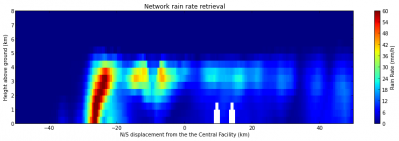
In late November, more than 100 radar experts from around the United States gathered at the University Corporation for Atmospheric Research in Boulder, Colo., to discuss how research radars can address critical science questions over the next 20 years and to identify related capability gaps. During the workshop, Scott Collis, ARM precipitation radar scientist from Argonne National Laboratory, demonstrated the Python-ARM Radar Toolkit (PYART). PYART is a new suite of interoperable tools developed in Python™ to read, manipulate, apply algorithms, and write radar data. Collis demonstrated PYART using Github, an open-source collaborative software environment.
Workshop participants emphasized the importance of using open-source community-based software for developing code and exchanging ideas. As a recognized leader in data sharing, ARM is actively working towards this goal and continually improving data algorithms. While at the workshop, Collis and Mike Dixon from the National Center for Atmospheric Research agreed on an approach to ensure that PYART and NCAR software are interoperable. This interoperability will provide choice and flexibility to the user community and remove barriers to working with complex data sets produced by the ARM scanning radars.
Collis developed PYART in collaboration with Scott Giangrande from Brookhaven National Laboratory and Kirk North from McGill University. Several ARM data products are being developed using the tool, with plans to formally release PYART to the radar research community in early 2013.
Sponsored by the National Science Foundation, the 3-day workshop drew 120 radar engineers, scientists, and technologists. In addition to Collis, ARM radar engineers Nitin Bharadwaj, Andrei Lindenmaier, and Kevin Widener, all of Pacific Northwest National Laboratory, attended.

